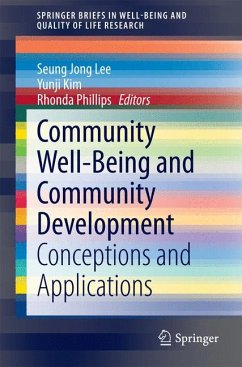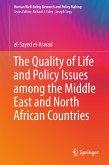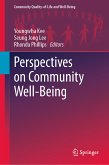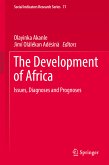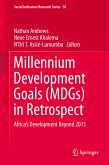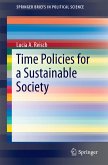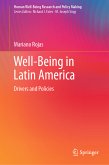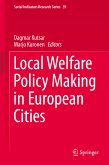This briefs provides foundations of both community wellbeing and community development, and the relationships between the two areas, including both similarities and differences. Community well-being encompasses a large array of concepts and disciplines. Community development, as an established discipline, is one framework that can help further understanding of community well-being, and is an allied concept. The interaction between the two areas is worthy of exploration, as both a new way to think about community development as well as a way to understand what community well-being entails. Beginning with a discussion of the foundations, the first and second chapters provide grounding for conceptions and potential theory applications as well as constructs for moving community wellbeing forward. The remaining chapters provide applications of community well-being in the context of community development, with examples from North America and Asia. Community development focused community wellbeing policies and programs illustrate processes and outcomes. ¿
Dieser Download kann aus rechtlichen Gründen nur mit Rechnungsadresse in A, B, BG, CY, CZ, D, DK, EW, E, FIN, F, GR, HR, H, IRL, I, LT, L, LR, M, NL, PL, P, R, S, SLO, SK ausgeliefert werden.

